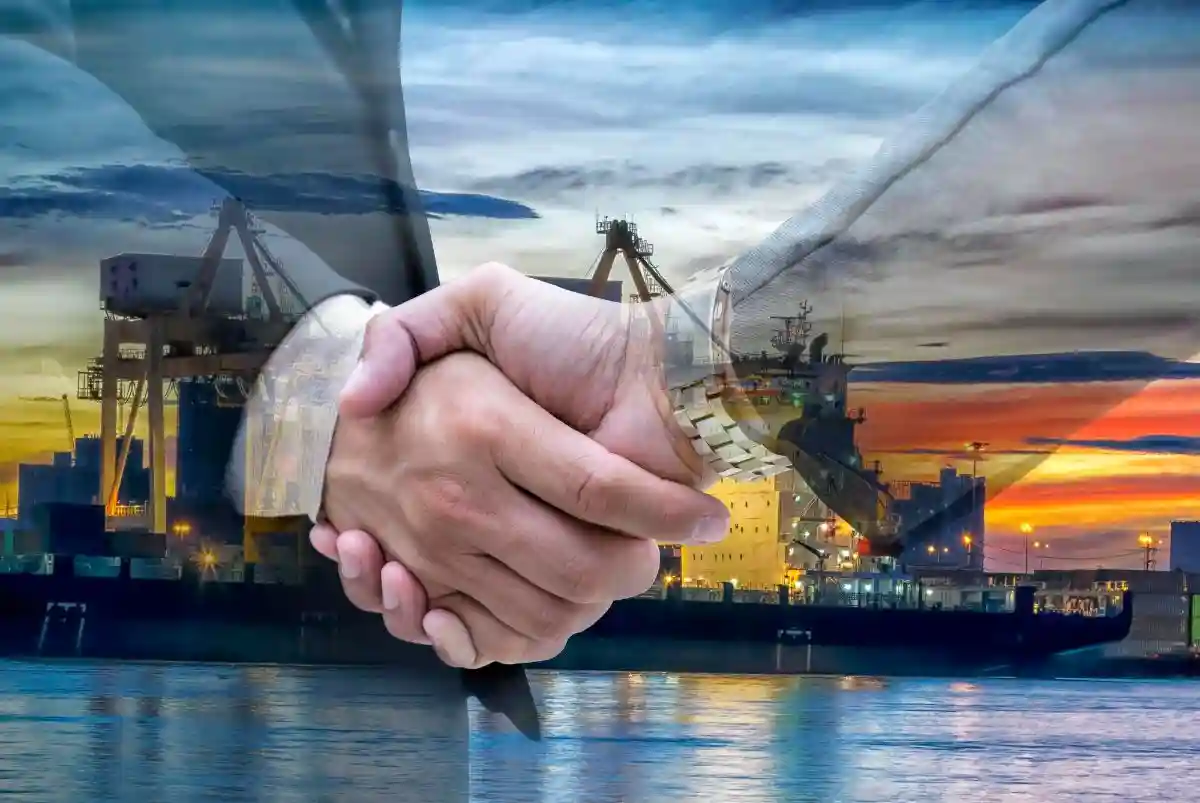The United Arab Emirates has a long and storied history when it comes to maritime activities. For centuries, the region has been a center of trade and commerce, with ships from all over the world passing through its waters. From the early days of seafaring, the UAE has been a vital link between Asia, Europe, and Africa, thanks to its strategic location at the entrance to the Persian Gulf.
Today, the UAE is one of the world’s most important maritime hubs, with top-notch ports and shipping facilities that serve as essential transit points for goods and commodities between these three continents. The country’s maritime industry has grown significantly in recent years, driven by a combination of factors, including its favorable location, modern infrastructure, and business-friendly policies.
The UAE government has invested heavily in its ports and shipping facilities, with the goal of making them some of the most advanced and efficient in the world. The country’s flagship ports, such as Jebel Ali in Dubai and Khalifa Port in Abu Dhabi, are equipped with the latest technology and equipment, enabling them to handle large volumes of cargo quickly and efficiently. Additionally, the country has established free trade zones in many of its ports, which offer a range of incentives to attract foreign investment and businesses.
Regulations and Enforcement
In order to oversee the operations and dealings including navigation, shipping, marine commerce, and nautical activities, a well-crafted set of regulations is required. In the United Arab Emirates, this legislation is known as Maritime law, which can also be referred to as admiralty law. The objective of this law is to ensure that all maritime activities and ships are carried out in a proficient, secure, and sustainable manner within the UAE. The Maritime Code, also known as Federal Law No. 26 of 1981, governs this area of law.
The UAE Federal Transport Authority- Land & Maritime (FTA), the Dubai Maritime City Authority (DMCA), and the Abu Dhabi Ports Company (ADPC) are among the many governmental and non-governmental organizations that oversee maritime law enforcement in the UAE. They work together to ensure that all maritime activities in the UAE comply with national and international regulations, including those set forth by the International Maritime Organization (IMO).
Ensuring Safety and Compliance
To ensure safety and environmental sustainability in UAE waters, there are several regulations and rules in place. For instance, the UAE Maritime Law of 1981 mandates that all ships and maritime vessels must comply with international safety standards and be seaworthy before being allowed to operate. Additionally, the UAE Federal Environmental Law of 1999 requires that all maritime activities must not pose any risk to the environment.
The UAE has also implemented the International Safety Management (ISM) Code, which outlines the requirements for a safety management system for ships and offshore drilling units. Under the ISM Code, shipowners and operators must develop and implement safety management plans that cover all aspects of their vessel’s operation, including crew training, maintenance, and emergency response procedures.
Furthermore, the UAE has adopted the International Convention for the Prevention of Pollution from Ships (MARPOL), which sets out strict regulations on the discharge of pollutants from ships. The country has also established a Maritime Inspection Department that oversees the compliance of ships operating in UAE waters with international maritime regulations and local laws.
To ensure the safety of maritime workers, the UAE has established strict rules on the qualifications and training of seafarers. The country’s Federal Transport Authority – Land & Maritime has also set standards for the design, construction, and operation of ports and terminals to ensure that they are safe and efficient.
Registration, Regulations, and Penalties
In accordance with Article 18 of the Maritime Code in the United Arab Emirates, vessels with UAE nationality must be registered with the Maritime Inspection Department. However, some boats, such as fishing boats or boats used in commerce with a tonnage less than 10 tons, are exempt from this requirement. It is essential to note that operating a vessel with a UAE flag that is not registered under the Maritime Code is a punishable offense. This offense carries a potential penalty of imprisonment for up to one year, a fine of up to AED 50,000, or both. Additionally, under Article 44 of the Maritime Code, the vessel can be seized as well. To avoid such penalties, vessels operating in UAE waters must comply with the regulations concerning maritime law in the UAE, which includes following the FTA’s minimum manning requirements, international safety regulations and rules, local and global environmental regulations, commercial regulations like chartering and freight, and having valid insurance coverage. In the event of a collision between vessels or disputes over payment, the UAE allows for the arrest of vessels, and there are specific regulations enforced by the UAE regarding salvage operations. Furthermore, vessels entering UAE waters must follow immigration and customs regulations, and the UAE has regulations related to maritime contracts, such as bills of lading and charter parties, which must comply with local and international laws. Therefore, to ensure compliance with UAE maritime law, it is crucial for all vessels to adhere to the regulations set forth by the UAE government.
Challenges and Opportunities
The UAE’s maritime industry faces both challenges and opportunities in the current global market. One major challenge is competition from other regional hubs, such as Singapore and Rotterdam, which are also major players in the global shipping industry. To remain competitive, the UAE is continuously working to invest in and modernize its ports and shipping facilities.
Another challenge facing the industry is the impact of technological innovations on shipping and port operations. The increasing use of automation and digitalization is transforming the industry, allowing for greater efficiency and cost savings, but also raising concerns about the impact on employment and the need for skilled workers. To address this challenge, the UAE is investing in training and education programs to develop a skilled workforce that can take advantage of these new technologies.
On the other hand, there are also many opportunities for the UAE’s maritime industry. The country’s strategic location at the crossroads of Europe, Asia, and Africa makes it an ideal hub for global trade and commerce. The growth of emerging markets in Africa and Asia also presents new opportunities for the UAE to expand its trade relationships and increase its market share.
Moreover, the UAE has taken steps to diversify its economy beyond oil and gas, and the maritime industry is seen as a key sector for this diversification. The country’s free trade zones and business-friendly policies make it an attractive location for international businesses looking to establish a presence in the region.




